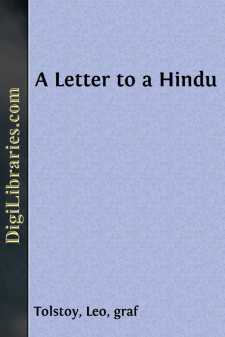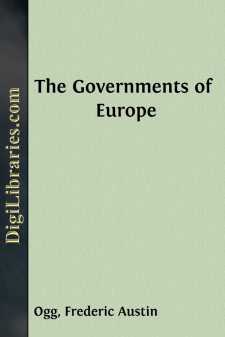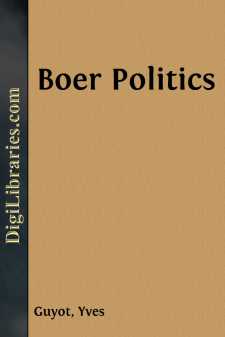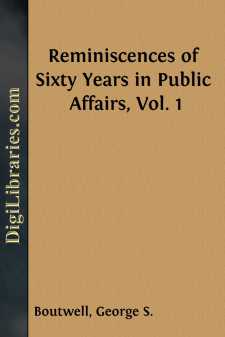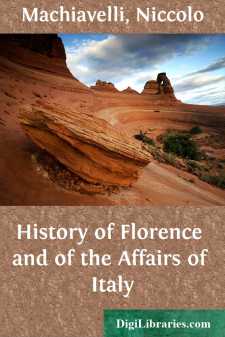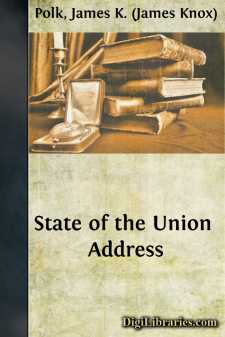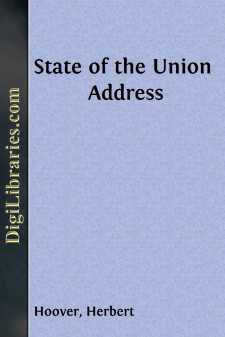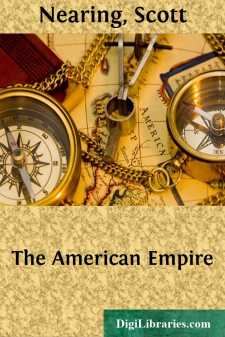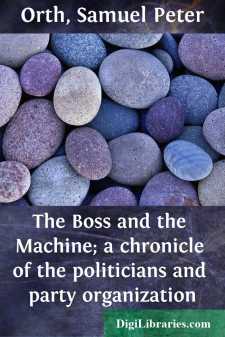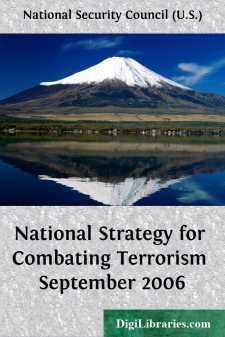Political Science
Political Science Books
Sort by:
by:
Leo Tolstoy
INTRODUCTION The letter printed below is a translation of Tolstoy's letter written in Russian in reply to one from the Editor of Free Hindustan. After having passed from hand to hand, this letter at last came into my possession through a friend who asked me, as one much interested in Tolstoy's writings, whether I thought it worth publishing. I at once replied in the affirmative, and told him...
more...
PREFACE It is a matter of common observation that during the opening years of the twentieth century there has been, in many portions of the civilized world, a substantial quickening of interest in the principles and problems of human government. The United States is happily among those countries in which the phenomenon can be observed, and we have witnessed in recent times not only the organization of...
more...
by:
Yves Guyot
INTRODUCTION. A word in explanation of this English edition is perhaps not unnecessary. It will be remembered that the arguments in the following pages appeared originally in the columns of Le Siècle, and from the correspondence between M. Yves Guyot and Dr. Kuyper and M. Brunetière (Appendix B), the reader will understand how the publication of Le Siècle articles in pamphlet form arose. In the...
more...
INTRODUCTION At the request of my daughter and my son and by the advice of my friends, the Honorable J. C. Bancroft Davis and the Honorable William A. Richardson, I am venturing upon the task of giving a sketch of my experiences in life during three fourths of a century. The wisdom of such an undertaking is not outside the realm of debate. A large part of my manhood has been spent in the politics of my...
more...
INTRODUCTION Niccolo Machiavelli, the first great Italian historian, and one of the most eminent political writers of any age or country, was born at Florence, May 3, 1469. He was of an old though not wealthy Tuscan family, his father, who was a jurist, dying when Niccolo was sixteen years old. We know nothing of Machiavelli's youth and little about his studies. He does not seem to have received...
more...
Fellow-Citizens of the Senate and of the House of Representatives: It is to me a source of unaffected satisfaction to meet the representatives of the States and the people in Congress assembled, as it will be to receive the aid of their combined wisdom in the administration of public affairs. In performing for the first time the duty imposed on me by the Constitution of giving to you information of the...
more...
by:
Herbert Hoover
To the Senate and House of Representatives: The Constitution requires that the President "shall, from time to time, give to the Congress information of the state of the Union, and recommend to their consideration such measures as he shall judge necessary and expedient." In complying with that requirement I wish to emphasize that during the past year the Nation has continued to grow in strength;...
more...
by:
Scott Nearing
I. THE PROMISE OF 1776 1. The American Republic The genius of revolution presided at the birth of the American Republic, whose first breath was drawn amid the economic, social and political turmoil of the eighteenth century. The voyaging and discovering of the three preceding centuries had destroyed European isolation and laid the foundation for a new world order of society. The Industrial Revolution...
more...
CHAPTER I. THE RISE OF THE PARTY The party system is an essential instrument of Democracy. Wherever government rests upon the popular will, there the party is the organ of expression and the agency of the ultimate power. The party is, moreover, a forerunner of Democracy, for parties have everywhere preceded free government. Long before Democracy as now understood was anywhere established, long before...
more...
Overview of America's National Strategy for Combating Terrorism America is at war with a transnational terrorist movement fueled by a radical ideology of hatred, oppression, and murder. Our National Strategy for Combating Terrorism, first published in February 2003, recognizes that we are at war and that protecting and defending the Homeland, the American people, and their livelihoods remains our...
more...


